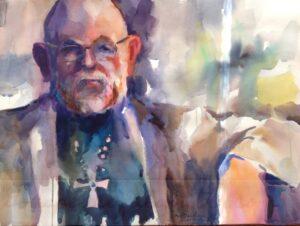Rediscovering Faith: The Phenomenon of Christian Revival
In the ebbs and flows of religious fervor throughout history, Christian revival has stood out as a powerful force of spiritual renewal and societal transformation. From the Great Awakening in colonial America to the charismatic movements of the 20th century, periods of revival have reinvigorated faith communities, sparked social change, and ignited personal transformations.
At its core, Christian revival is a spiritual awakening marked by a renewed passion for faith, a deep sense of conviction, and a commitment to live out the teachings of Jesus Christ. It often emerges in response to societal or moral decline, seeking to rejuvenate the church and inspire believers to live authentically Christian lives.
One of the defining characteristics of Christian revival is its emphasis on personal conversion and repentance. Revivalists often call upon individuals to examine their lives, confront sin, and turn back to God in genuine repentance. This introspective journey can lead to profound spiritual experiences, where individuals encounter God in a deeply personal way and find forgiveness, healing, and redemption.
Christian revival is also characterized by fervent worship and prayer. Revival meetings, often marked by passionate preaching, soul-stirring music, and heartfelt prayers, become focal points for believers seeking spiritual renewal. These gatherings create an atmosphere charged with faith and expectancy, where people come together to seek God’s presence and guidance.
Moreover, Christian revival often extends beyond the walls of the church, influencing broader society. Throughout history, revivals have been associated with social reform movements, such as the abolition of slavery, the civil rights movement, and efforts to combat poverty and injustice. Inspired by their faith, revivalists have championed causes of justice and compassion, seeking to bring about God’s kingdom on earth.
In recent decades, Christian revival has taken on new forms, adapting to the changing cultural landscape. Charismatic and Pentecostal movements, for example, have brought a renewed emphasis on spiritual gifts, divine healing, and the empowering presence of the Holy Spirit. These movements have attracted millions of followers around the world, reshaping the global Christian landscape.
Additionally, the rise of digital technology has facilitated new avenues for Christian revival, with online platforms enabling virtual gatherings, worship experiences, and global prayer networks. Social media has become a powerful tool for spreading revival messages and connecting believers across geographical boundaries.
The enduring appeal of Christian revival speaks to a deep human longing for meaning, purpose, and connection with the divine. In a world marked by uncertainty and turmoil, the promise of spiritual renewal and transformation continues to resonate with believers across denominational lines and cultural divides.
As we look to the future, the phenomenon of Christian revival reminds us of the enduring power of faith to inspire hope, catalyze change, and transform lives. Whether experienced in the intimacy of personal prayer or the collective energy of a revival meeting, the call to revival invites us to journey deeper into the heart of God and to embrace the abundant life offered through faith in Christ
My Bishop, Charlse Jones emphasizes that revival is first of all in one person. Then it spreads, one to two, to four etc. You could spark a revival. My step son recently has become a committed Christian. He credits this partly to watching my life. This week a Friend came to him unexpectedly to ask about Jesus. When one life changes others think “I need that in my life,”
For more posts click here.
Especially here
And here
